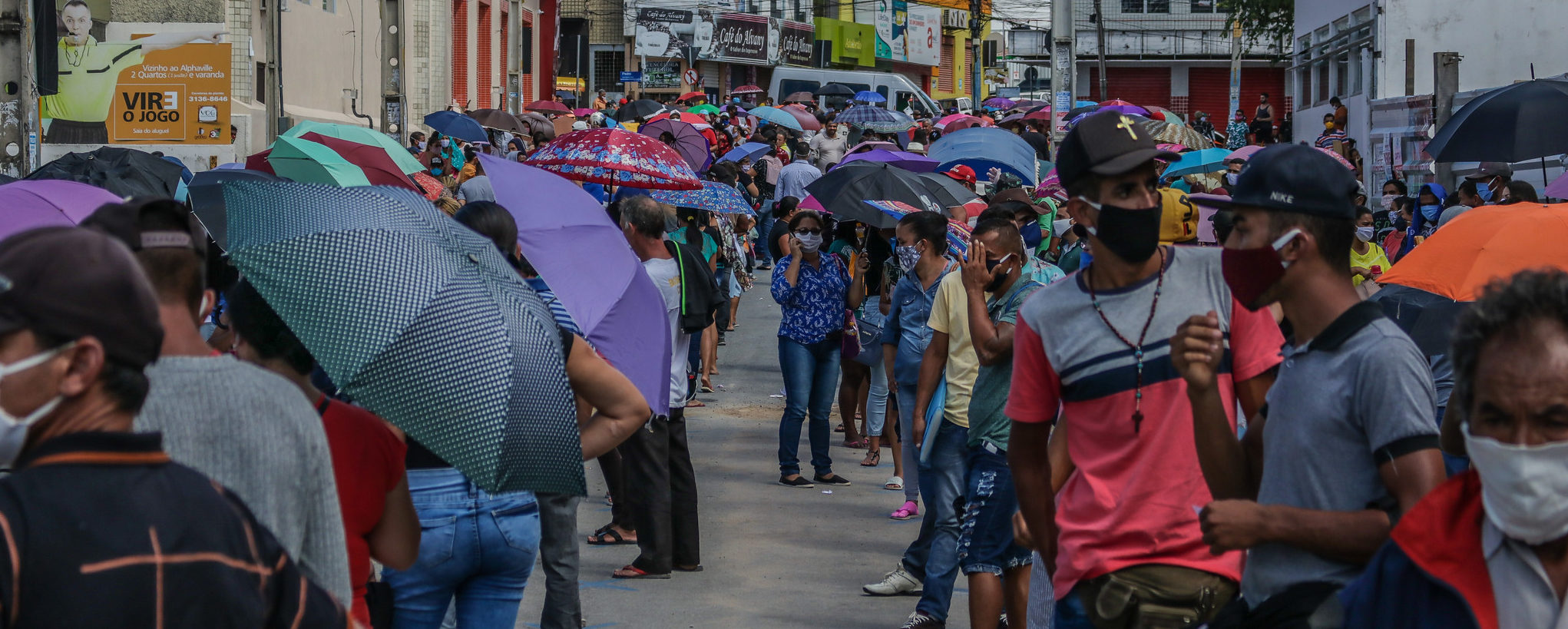08/05/2020 17:27
The drama of access to emergency relief has been unfolding for over a month, amidst a tragic pandemic haunting humanity which has imposed changes in behavioral, cultural and social habits worldwide. Even so, the government of Jair Bolsonaro seems oblivious to any sense of emergency, serious danger or unforeseen tipping points that demand immediate action.
Even in this context of a public health crisis along with economic collapse and the degeneration of “democracy” since the parliamentary coup of 2016, no steps have been taken by the federal government to reduce inequalities, such as income distribution, job security guarantees, lower interest rates for workers, stronger public health, education or social-security policies, much less the taxation of large fortunes. Quite the contrary. We are witnessing necropolitics, a death State, targeting the most impoverished whose disposable communities are utterly vulnerable.

Prefeitura de Caruaru
In a timid and limited action, the president initially offered an emergency monthly relief handout of only R$ 200 – less than US$ 40! – entirely detached from the practical reality of people’s lives. Although inflation in the country was 0.07% in March 2020 (official IPCA Price Index), the lowest rate ever since 1994, poor people can still not afford food or health protection against the pandemic. Despite the lower overall inflation rate, food and beverage prices rose 1.13% compared to February (0.11%), as more meals were served at home and supply has run short of demand at street fairs and markets. The Inter-Union Department of Statistics and Socioeconomic Studies (DIEESE) reports that from March 1-18, the price of the basic food basket rose in 15 of the 17 capital cities surveyed. In short, in all states the average price of the basic food basket rose from R$ 371 to R$ 492.
These figures expose the government’s utter disregard for the emergency, since R$ 200 will not feed a family anywhere in the country. While at a press conference called on March 24 to deal with one more of the government’s political crises, the President of Brazil arrogantly brandished his “R$ 24,000-a-year petty cash allowance with no receipts required,” millions of Brazilians were anxiously awaiting their emergency relief checks to buy food, pay bills and stay alive in this sea of inequality, injustice and uncertainty.
Nonetheless, the national emergency relief bill approved by Congress, as a result of understandings with left-wing legislators and strong public pressure from civil society organizations and social movements, hiked that monthly payment to R$ 600. The delay from the bill’s approval, reluctantly signed into law by the Bolsonaro and his economic team, to the actual payment of the relief, however, has been an excruciatingly long process for the population. The whole application process has featured a plethora of missing or mis-information on formats and deadlines for payments, in addition to the awkward software provided to file for relief and access digital bank accounts opened by the official “Caixa Econômica” federal bank.
On April 23, the Ministry of Citizenship released R$ 1.2 billion as “supplementary credit,” authorized in a special edition of the Official Gazette, as the first installment of emergency relief, which began to be deposited in beneficiaries’ accounts on May 2. The advance on the second installment, though, was postponed shortly after it had been widely publicized by officials. This is not surprising, since the government often tells one story in the morning, unravels it throughout the day and by night it has never existed.
The government’s sluggishness and bureaucratic snags suggest a deliberate strategy to release funds drop by drop. We demand accountability and clarity from the Federal Government in its handling of these resources. We defend the adoption and the right to a universal citizen’s income and the inclusion of sectors such as family farm workers, quilombolas, artisanal fisherwomen, informal workers and other groups. It is also urgent and necessary to levy taxes on large fortunes.










